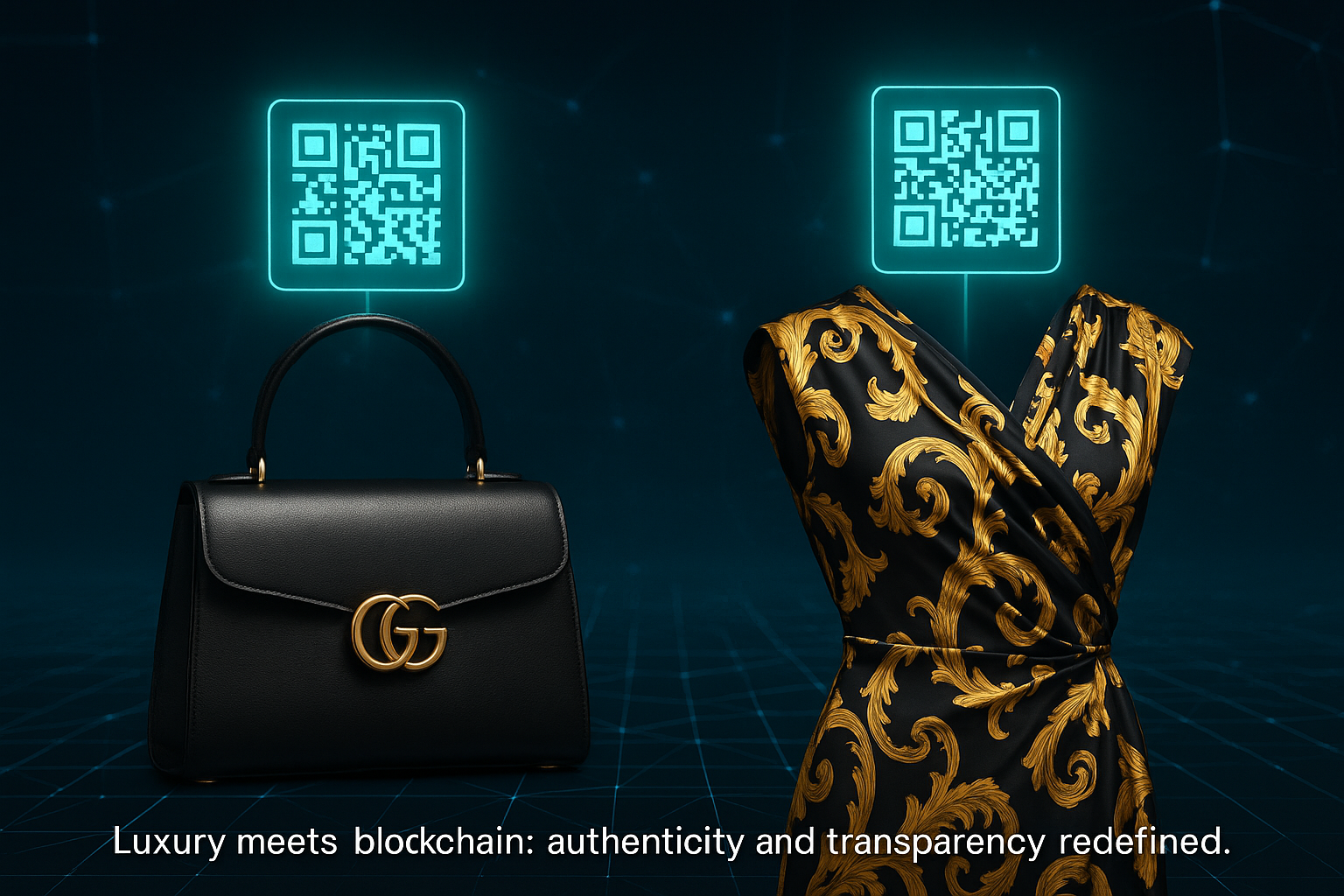In 2025, the luxury fashion industry is undergoing one of its most profound transformations since the advent of e-commerce. Iconic brands such as Gucci, Versace, and Balmain are leading the charge into a digital frontier where NFTs (non-fungible tokens) and blockchain-powered digital product passports (DPPs) promise to reshape how consumers engage with luxury goods.
Once dismissed as speculative tech experiments, NFTs and DPPs are now being woven into the very fabric of the luxury supply chain. These innovations are not just about adding digital flair — they are tackling two of the industry’s thorniest challenges: counterfeiting and supply-chain opacity.
The Promise of Digital Product Passports
A digital product passport is essentially a blockchain-backed certificate that travels with a product from its origin to the end consumer. Each item — whether it’s a handbag, pair of sneakers, or haute couture gown — comes with a unique digital identity accessible via a QR code, embedded chip, or NFT link.
Gucci’s latest Aria collection, for example, pairs physical pieces with digital twins — NFTs that certify the product’s authenticity, origin, materials, and care instructions. Versace, meanwhile, is piloting a system where customers can trace the journey of their garments from textile sourcing to final tailoring, meeting growing demand for ethical and sustainable fashion.
Combating Counterfeiting in the Digital Age
Luxury counterfeiting is a billion-dollar problem that erodes brand value and consumer trust. By embedding NFTs and DPPs into their products, brands are creating tamper-proof records of authenticity that are nearly impossible to forge.
For consumers, this means peace of mind. Buying a pre-loved Dior saddle bag or limited-edition Rolex on the secondary market no longer requires blind trust — the item’s entire provenance can be instantly verified on-chain.
The Green & Ethical Dimension
This digital pivot is about more than anti-counterfeiting. Today’s luxury shoppers — especially Gen Z and millennial consumers — demand eco-consciousness and ethical transparency.
DPPs provide a clear record of a product’s environmental footprint: where materials were sourced, under what labor conditions they were crafted, and how they can be recycled or resold. These features align perfectly with the EU’s upcoming regulations on product sustainability reporting, which will soon require such disclosures.
The Road Ahead
While the fusion of NFTs, DPPs, and luxury fashion is still in its early stages, momentum is building. Vogue Business reports that by 2027, over 60% of European luxury products are expected to include digital passports. The combination of heritage craftsmanship and cutting-edge tech might seem paradoxical, but it’s proving to be a powerful match — ensuring the timeless value of luxury goods in a digital-first world.
In the words of a recent Medium analysis: “The future of luxury isn’t just about owning beautiful things. It’s about knowing their stories.”




